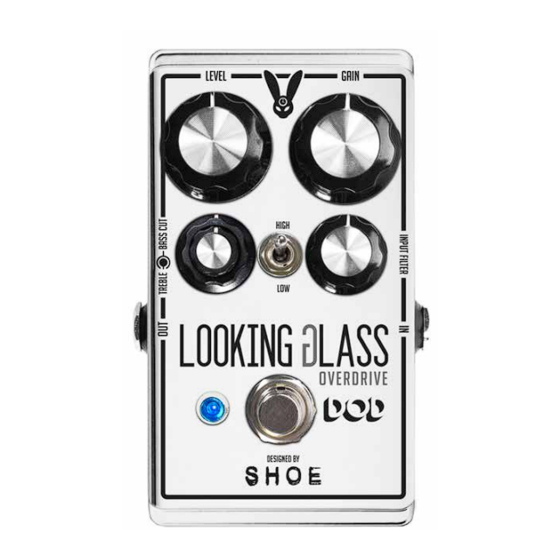
Table of Contents
Advertisement
Quick Links
Advertisement
Table of Contents

Summary of Contents for DOD LOOKING GLASS OVERDRIVE
- Page 2 David Bowie songs. When DOD approached me to collaborate on a new pedal, I was given free reign to make whatever I wanted (within reason). So, I first went back to my roots and designed a wild high gain fuzz.
- Page 3 1. LEVEL - Sets the output level of the effect. It is recommended that you turn this down when switching to high gain mode to avoid any large jumps in volume. 2. GAIN - Controls how easily the pedal is pushed into overdrive. Because the Looking Glass rewards dynamic playing, most settings can produce a clean sound when picking lightly.
- Page 4 4. INPUT FILTER - This is a variable filter that adjusts the tone of the input signal. To help match with brighter guitars and reduce the prominence of spikey pick attacks, turn this control more to the left. For a brighter sound with more prominent attack, turn this control all the way up.
- Page 5 USING LOOKING GLASS: Most guitarists/bassists will favor placing the Looking Glass at the beginning of their chain of effects, so start with that placement. A typical effects signal chain will consist of Overdrive effects first then Modulation effects (Chorus, Flanger, Phaser, Tremolo, etc...) next and then finally Time based effects (Delay and Reverb).
















Need help?
Do you have a question about the LOOKING GLASS OVERDRIVE and is the answer not in the manual?
Questions and answers